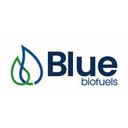The USGC’s office in Beijing in March organized a set of meetings aimed at assessing demand for SAF. USGC Director in China Manuel Sanchez led the team that included USGC Program Manager Ellie Yan and USGC Regional Ethanol Consultant Aaron Goh.
IAG and Microsoft are extending their 2023 co-funded purchase agreement for SAF by five years. The SAF used under the agreement will be produced by Phillips 66’s Humberside refinery and LanzaJet’s facility in the U.S.
The International Air Transport Association has launched the Sustainable Aviation Fuel (SAF) Registry with its release to the Civil Aviation Decarbonization Organization. The registry is now live and under CADO management.
Gevo Inc. CEO Patrick Gruber discussed the company’s proposed sustainable aviation fuel (SAF) project in South Dakota during a fourth quarter earnings call, held March 27, indicating financial close could be achieved by year-end.
The International Air Transport Association has established the Civil Aviation Decarbonization Organization to manage the IATA-developed Sustainable Aviation Fuel (SAF) Registry when it is released.
2025 International Biomass Conference & Expo concludes as largest event in a decade and unparalleled industry insights
The 2025 International Biomass Conference & Expo, held March 18-20 in Atlanta Georgia, featured of insightful discussions, cutting-edge technology showcases, and unparalleled networking opportunities.
Universal Fuel Technologies (Unifuel) has completed a successful five-month SAF pilot project. The campaign demonstrated the effectiveness and viability of the company’s Flexiforming technology in producing SAF from various renewable feedstocks.
The International Air Transport Association has enhanced its IATA CO2 Connect emissions calculator to account for carbon emissions reductions related to the usage of sustainable aviation fuel (SAF).
Airbus, Japan Airlines, Nippon Paper Industries, Sumitomo Corp., and Green Earth Institute have signed a MOU to collaborate on the realization of sustainable aviation fuel (SAF) using bioethanol derived from domestic wood.
Preliminary agenda announced for 2025 International Fuel Ethanol Workshop & Expo
Ethanol Producer Magazine announced this week the preliminary agenda for the 2025 International Fuel Ethanol Workshop & Expo (FEW) taking place June 9-11, 2025 at the CHI Health Center in Omaha, Nebraska.
As the Philippines moves toward unlocking the potential of SAF, the USGC collaborated with the Philippines Department of Transportation and Boeing to conduct the first Philippines SAF Summit in Manila.
Honeywell on Feb. 26 announced that Taiyo Oil Co. Ltd. has chosen the Honeywell UOP Ethanol to Jet (ETJ) technology to produce sustainable aviation fuel (SAF) at its Okinawa Operations in Japan. The facility is expected to begin operations in 2029.
Haffner Energy, a solid biomass-to-clean fuels solutions provider, and ATOBA Energy, a sustainable aviation fuel (SAF) aggregator, are joining forces to accelerate the development of SAF projects and facilitate their financing.
The Minnesota Senate Taxes Committee on March 3 voted to approved legislation that aims to extend and expand the state’s existing tax credit for sustainable aviation fuel (SAF), which was established in 2023.
The U.K. government on March 3 opened a public consultation on a SAF revenue certainty scheme, which aims to reduce financial risks for emerging SAF producers. The scheme complements the U.K.’s SAF mandate, which came into force Jan. 1, 2025.
The U.S. strongly objects to a recommendation on “sustainable” aviation fuels focused on multi-cropping made during the 13th triennial meeting of the ICAO Committee on Aviation Environmental Protection.
Comstock Inc. on Feb. 28 announced a new $14 million investment and strategic collaboration with Marathon Petroleum Corp. to advance its lignocellulosic biomass refining solutions to commercial maturity.
Rep. Max Miller, R-Ohio, on Feb. 27 reintroduced the Farm to Fly Act, a bill that aims to accelerate the production and development of sustainable aviation fuel (SAF). Companion legislation was reintroduced in the Senate during January.
The General Court of the European Union on Feb. 27 dismissed a challenge against the ReFuelEU Aviation regulations brought by European biofuel producers last year regarding regulation’s exclusion of crop-based fuels.
The Sustainable Aviation Fuel Coalition met with key lawmakers on Capitol Hill on Feb. 26 to discuss critical policies supporting the domestic growth and adoption of sustainable aviation fuel (SAF) in the U.S.
LanzaJet on Feb. 24 announced that Cosmo Oil Co. Ltd. has been selected for a FY2024 subsidy from Japan's Ministry of Economy, Trade and Industry to support a project developed with Mitsui & Co. that will plan to utilize LanzaJet technology.
Nippon Paper Industries Co. Ltd., Sumitomo Corp., and Green Earth Institute Co. Ltd. have announced plans to form a JV, Morisora Bio Refinery LLC, which will focus on the production and sale of ethanol and chemicals from woody biomass.
Gevo Inc. and Axens have announced the formation of a new strategic alliance to accelerate development and commercialization of sustainable aviation fuel (SAF) using the ethanol-to-jet (ETJ) pathway.
Key players in Europe’s aviation industry, including airlines, airports and manufacturers have outlined to EU policymakers seven critical measures to stimulate sustainable aviation fuel (SAF) production in Europe.
The U.K. Department for Transport has announced it will invest £63 million over the next year under its Advanced Fuels Fund to support SAF producers. The agency also issued a response to its consultation on a revenue certainty mechanism for SAF.
The International Air Transport Association on Jan. 31 released its methodology for accounting and reporting the emissions reduction associated with the use of sustainable aviation fuel (SAF) by airlines.
Blue Biofuels has signed an agreement to acquire 35.5 acres of land in Frostproof, Florida. The company plans to develop a 3 MMgy facility on the site. Planned expansion projects would boost capacity to 100 MMgy of cellulosic ethanol and SAF.
Valero Energy Corp. on Jan. 30 released Q4 financial results, reporting that both its ethanol and renewable diesel segments were profitable during the period. The company also announced that its SAF project in Texas is fully operational.
Texas Gov. Greg Abbot on Jan. 29 announced Summit Next Gen LLC’s proposed ethanol-to-SAF project under development near Houston qualifies under the state’s new Texas Jobs, Energy, Technology and Innovation (JETI) program.
A bill introduced in the North Dakota Senate aims to create a low-carbon fuels fund that would help the state’s ethanol producers lower the CI of the fuel they produce, increasing local demand for corn and helping producers access SAF markets.
Advertisement





























